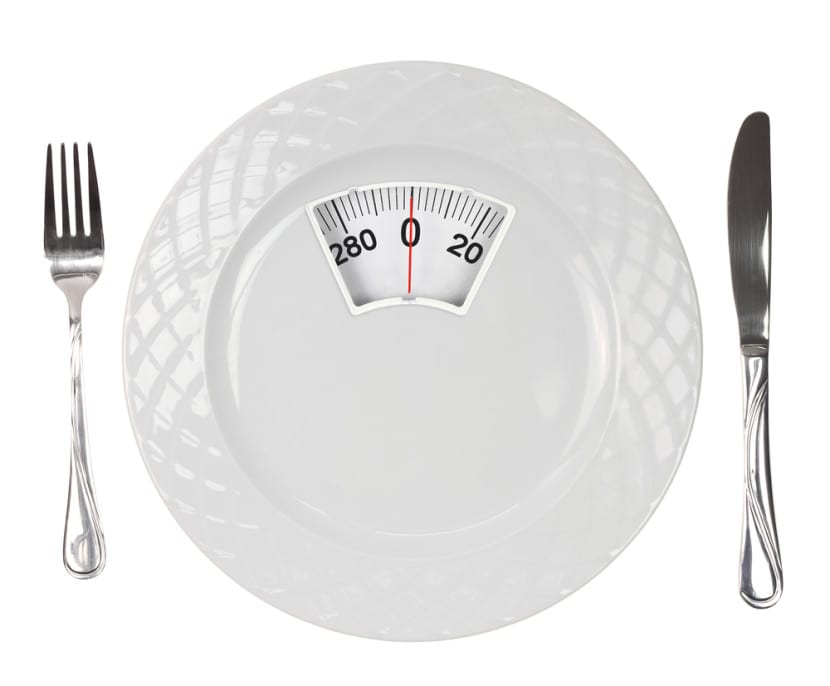
I recently witnessed how an 8-year-old girl asked an adult if what she was about to eat made her fatter a lot, because if she was she preferred not to eat it before "being fat and ugly." That an 8-year-old girl, who has not yet menstruated, thinks that it is better not to eat something she likes just to avoid gaining weight, it is clear that we are doing something wrong. If he had said other arguments such as that he prefers to have a healthy lifestyle or that if it is made as a result of animal suffering he prefers not to eat it, then I would be less alarmed since it would be other types of (better) values that the girl is receiving in her education.
On the other hand, that a little 8-year-old girl does not want to eat something just in case she gets fat and because she does not want to "be fat and ugly" is a red flag for all adults. There is a constant struggle in our society over the canons of beauty that sometimes seem nonsensical.. A nonsense that women should be almost in the bones for society to accept them as beautiful.
Curvy women are beautiful, those who have a healthy body are also beautiful, those who feel beautiful are the most beautiful ... but that the lack of self-esteem in our society is used to shape little girls, that is not admissible. Y we parents must fight against this to give good values to our sons and daughters and so that they do not fall into the error of wanting to be socially accepted before being accepted by themselves.
Eating disorders in adolescence
Adolescents are the most vulnerable to suffer from an eating disorder due to their desire to be accepted by others and to fit into this society in which they live. Many adolescents with an eating disorder do not even receive proper treatment and sThey are usually between the ages of 12 and 25, although it seems that it increasingly affects younger boys and girls.
But the question for many parents remains the same, How do you know that your children have an eating disorder and that it is not something transitory of age? If your child overeats and then vomits (or spends too much time in the bathroom), if he is hungry and tries to distract himself from thinking about food, if he exercises too much, if he is obsessed with the calories he eats … It is possible that your adolescent child may have an eating disorder. We eat to live and when food becomes a problem for the person the results can be heartbreaking and very life threatening.
A veces An eating disorder has much more to do with low self-esteem, anxiety, social pressure, some trauma that has not been emotionally treated, family problems, etc. In other words, it may be a serious emotional problem that is not being taken into account but that is the great underlying problem.

But it is necessary that in addition to taking all the above into account, you also pay attention to the signs and symptoms. It's not always as obvious as finding out that your child is vomiting after eating or hiding food. You should be aware of the following signs to know if your child really needs help and begin to assess how to get it.
Signs of a possible eating disorder
Obsession for exercise
Today it is good to exercise, go out, move and not have a sedentary life. But if your child has a true obsession with exercise and is capable of sacrifice family time, with friends or study time to stay in shape, then you should start to pay more attention to their behavior.
Binge eating
Eating disorders is not only that people do not eat as occurs in anorexia, on other occasions they can eat a lot and then throw it up. They may binge eat and then severely restrict food and binge again.

Excessive weight loss
If your son or daughter has started to lose a lot of weight in a short time, it is normal for you to realize that it is a possible alarm signal that you should take into account. If your child is always obsessed with weighing less and less on the scale be careful, because you may be eating fewer calories to lose weight.
Eating without anyone in front
A teenager who eats alone can easily hide his eating disorder. If your son or daughter leaves at mealtime to exercise, it is because wants to avoid eating, If you go to the bathroom after eating, you may want to vomit, or you may find excuses to eat alone so that you can control what you eat (or not eat).
Dieting all the time
Dieting is okay only when you intend to lead a healthy life and instead of dieting it becomes a healthy lifestyle. But if your adolescent childe is obsessed with dieting, With controlling calories or if your concern is what you eat or how you should eat it, you should pay attention because you may be suffering from an eating disorder.
Has a bad mood constantly
It is possible that your child feels unhappy and that is why irritability or depression are part of his life because is fighting negative feelings and guilt that causes you to have the eating disorder.
Excessive concern with the image
If you only think about how you look, how your clothes fit, if you cry because you look "fat", if you do not stop comparing yourself to other people who you consider perfect because of their weight and begins to eat irregularly to lose weight, eye! It's another red flag.

If you suspect that your son or daughter may have an eating disorder, then it will be time to talk to him or her without trying to blame him for anything and without frights. The talk should be friendly and you should at all times understand his position, show yourself by his side to support him without judging and try to know what he thinks to have reached that point. It is necessary that the next step is a talk with your doctor to provide you with resources and information to deal with the disorder and that your child is also treated appropriately by a professional so that your adolescent child improves.
Bad reporting, signs such as your child overeating and then vomiting or losing weight abruptly, or is on a constant diet, or suffers from wanting to eat and does not do so There are no possible signs of an eating problem, they are EVIDENT symptoms of a eating disorder I don't need to come to this to be suspicious. It is as if they said to you "if your son comes home with luxury cars, weapons and a lot of cash you should suspect that he may be committing an offense." The report is very crude, I was looking for more subtle signs, an aid to know what to pay attention to before it becomes a disorder